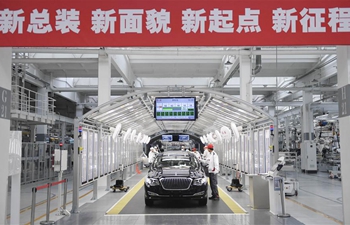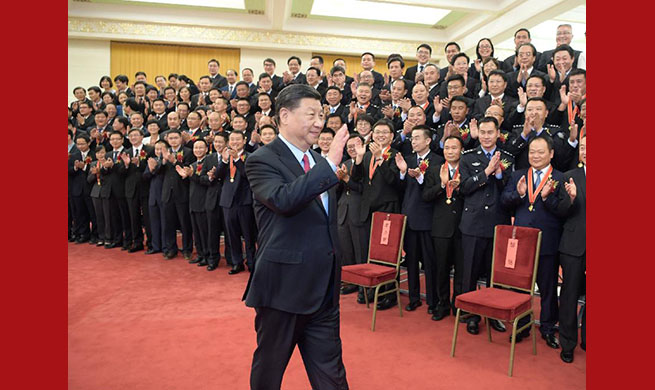BERLIN, June 26 (Xinhua) -- The share of renewable electricity climbed to a record high of 44 percent of Germany's electricity consumption in the first half of 2019, the German Association of Energy and Water Industries (BDEW) announced on Wednesday.
In the same period last year, the share of renewable energies was only 39 percent, according to the BDEW and the German Center for Solar Energy and Hydrogen Research Baden-Wuerttemberg (ZSW), which contributed to the calculations.
"The green electricity record is an encouraging snapshot, but it must not hide the deeper structural problems," cautioned BDEW Chief Executive Stefan Kapferer.
If renewables expansion in Germany continued at the current rate, it would reach a share of 54 percent by 2030. However, this would still fall below the German government's target of 65 percent renewable energy in electricity consumption, noted Kapferer.
The BDEW and ZSW calculated that, in the first half of this year, onshore wind turbines generated the largest share of green electricity in Germany at 55.8 billion kilowatt hours.
This was an 18 percent increase compared to the same period last year, according to German energy organizations.
Solar systems supplied around 24 billion kilowatt hours of Germany's electricity in the first half of 2019, an increase of around one billion kilowatt hours.
The high share of renewables in the first half of 2019 was partly attributable to "exceptional weather conditions," according to the BDEW.
March was a record month for wind but wind yields in the remaining months were also consistently above the long-term averages in Germany.
"We urgently need a stronger expansion of renewable energies and more energy efficiency in all sectors in order to achieve the climate protection target for 2030," said ZSW Managing Director Frithjof Staiss.
Staiss pleaded for Germany to adopt a price premium for fossil energies, such as coal or oil, based on the amount of carbon dioxide (CO2) emitted.
The German government's climate cabinet is currently working on proposals for a CO2 price, which will be discussed at a meeting in July.
The German Association of Local Utilities (VKU) has recently submitted a proposal to this effect as part of a study, which provided for a gradual standardization of CO2 prices in Germany's electricity, heat and transport sectors by 2030.
"Germany's ambitious climate protection targets could only be achieved if CO2 is priced in all sectors," Ralf Wissen, managing partner of r2b energy consulting and author of the study, told Xinhua on Wednesday.













